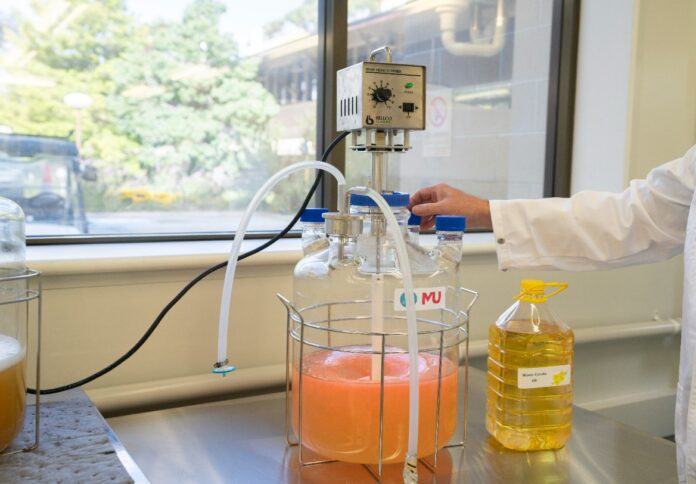
Australia’s national science agency CSIRO and Murdoch University have joined forces to establish the Bioplastics Innovation Hub, a groundbreaking $8 million initiative aimed at revolutionising plastic packaging with the development of 100 per cent compostable bioplastics.
The Hub is set to bring together a diverse team of experts in microbiology, molecular genetics, synthetic biology, biochemical engineering, advanced manufacturing, and circular economy, the agency said in a news release.
Dr Andy Whiteley, CSIRO Research Program Director, emphasised the collaborative nature of the project, stating, “Our primary focus is the development of 100 per cent compostable, bio-derived packaging for use as sprays, films, bottles, caps, and wrappers which are engineered to fully break down in compost, land, and in aquatic environments.”
According to CSIRO, as global concerns over plastic pollution and fossil fuel depletion grow, the demand for compostable bioplastics is rapidly increasing.
The Bioplastics Innovation Hub aims to meet this demand by equipping the plastics industry with the necessary tools and expertise.
“Through the Bioplastics Innovation Hub, we are focused on developing bioplastics that will help address the plastic waste problem both in Australia and globally,” said Dr Wilson Ling, CEO of Ecopha Biotech Pty Ltd, a key industry partner in the project.
The first major project under the Hub will be a collaboration with WA-based Ecopha Biotech to develop a new process for producing water bottles from compostable bioplastics derived from food industry waste.
This initiative is expected to significantly reduce the environmental impact of plastic bottles and contribute to a circular economy.
Murdoch University’s Deputy Vice-Chancellor of Research & Innovation, Professor Peter Eastwood, highlighted the urgent need for innovative solutions to manage the growing plastic waste crisis.
“Together with CSIRO, Murdoch University will fast-track the production of novel compostable bioplastic and introduce a green plastic to the market which will significantly minimise the requirement for non-sustainable plastic production,” Professor Eastwood said.
Meanwhile, Dr Deborah Lau, CSIRO Ending Plastic Waste Lead, stressed the importance of a comprehensive approach to addressing plastic waste.
“It is critical to address the growing problem of plastic waste and reduce its environmental footprint. This needs a systems approach, and we are developing a broad range of scientific and technological solutions for the entire plastics supply chain to support government and industry initiatives, eliminate litter, and divert plastic waste into a resource to build Australia’s circular economy,” Dr Lau explained.
The Bioplastics Innovation Hub will be based at Murdoch University’s main campus in Perth, Western Australia, and will play a crucial role in training the next generation workforce in advanced biomanufacturing.
The initiative aligns with CSIRO’s goal of reducing plastic waste entering the Australian environment by 80 per cent by 2030, supporting Australia’s commitment to the United Nations Global Treaty on plastic pollution and the Australian government’s National Plastics Plan.
Ecopha Biotech CEO, Dr Ling, underscored the collaborative success of the Hub, adding, “The success we’re seeing is because of the hard work of all the stakeholders—The research teams at Murdoch University, the scientific expertise of CSIRO, innovators, students, entrepreneurs, policymakers, and government bodies. Together, we’re making a real difference for a more sustainable future.”




















